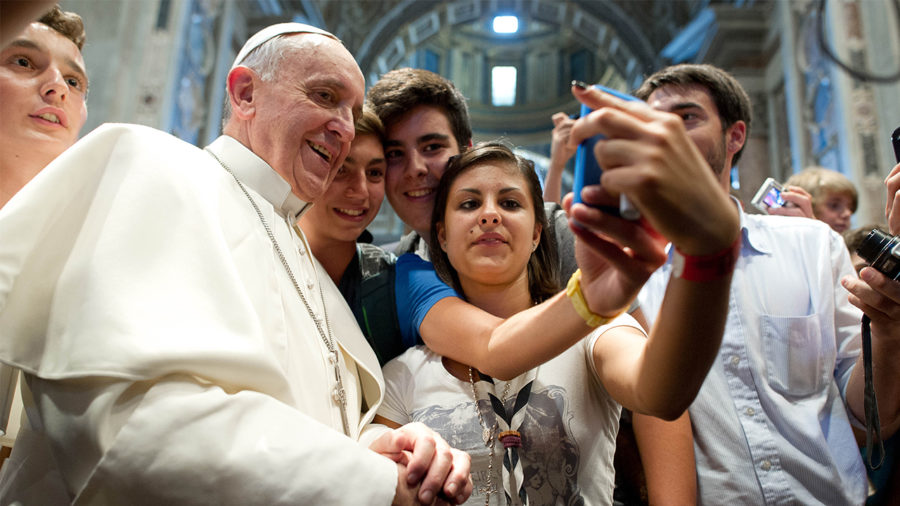Friday afternoon, students and professors filled up the Liberal Arts Building auditorium to hear a lecture on theology by Tom Ryan, director of the Loyola Institute for Ministry and guest speaker for Philosophical Fridays. Ryan discussed Pope Francis’ ideology concerning faith and science, claiming that there are foundational similarities between the two.
Ryan began by giving some background on the current pope. Allegedly, Pope Francis previously worked as a bouncer in bars and has an associate’s degree in chemistry. The underlying themes of the lecture covered subjects like the significance of material things, and that theology is incomplete without both faith and science.
Highlighting the three commitments of the Catholic Church, materialism, open-mindedness and science were explained through a religious lens. In his argument for materialism, Ryan analyzed the first book of Genesis.
“God created six material things and all six times he said it was good,” Ryan said. “Then humans came out of the material earth as dust and God said it was very good.”
Ryan asserted that humans are not the center of the universe and that humankind is no more important than everything in the earth because it was all created by God.
“Creation is a book that reveals God,” Ryan said. “Something important to me is unity. We are interconnected with creation. We are all stardust, so how does that change the way we interact with creation?”
The main focus of the lecture was not so much on Pope Francis’ recent visit to the United States, but more on the history of Catholics’ commitment to science throughout time. The Catholic Church is also devoted to inquiry, accepting the fact that its assumptions about the world could be falsifiable, just as theories of science can be disproven.
“I love church history,” Ryan said. “It is wild—better than anything on TV. The Catholic Church is participating in ongoing renewal. A defining characteristic of Christianity is that it tries to correct things that are not working well.”
Corey Bradberry, theater major, was present at the lecture, and he was not so confident about Ryan’s argument. He pointed out certain flaws and holes in the lecture.
“I think there are fundamental differences between science and religion that cannot be reconciled,” Bradberry said. “Science is founded on observable data that can be demonstrated. Comparing faith and science is tricky.”
After 45 minutes, Ryan concluded his lecture with an open discussion between himself and the audience. Attendees were free to ask questions about the lecture and probe for more information. In this area of the discourse, Bradberry felt Ryan was not as solid.
“His argument was organized,” Bradberry said. “But I was more interested in seeing how he would justify the fundamental differences between faith and science. I think he shied away from some pertinent questions.”
Philosophical Fridays is a series of events that features guest speakers who come and discuss interesting topics throughout the semester. Audience members are allowed to fill out evaluation forms to rate the overall quality of the lecture.


























